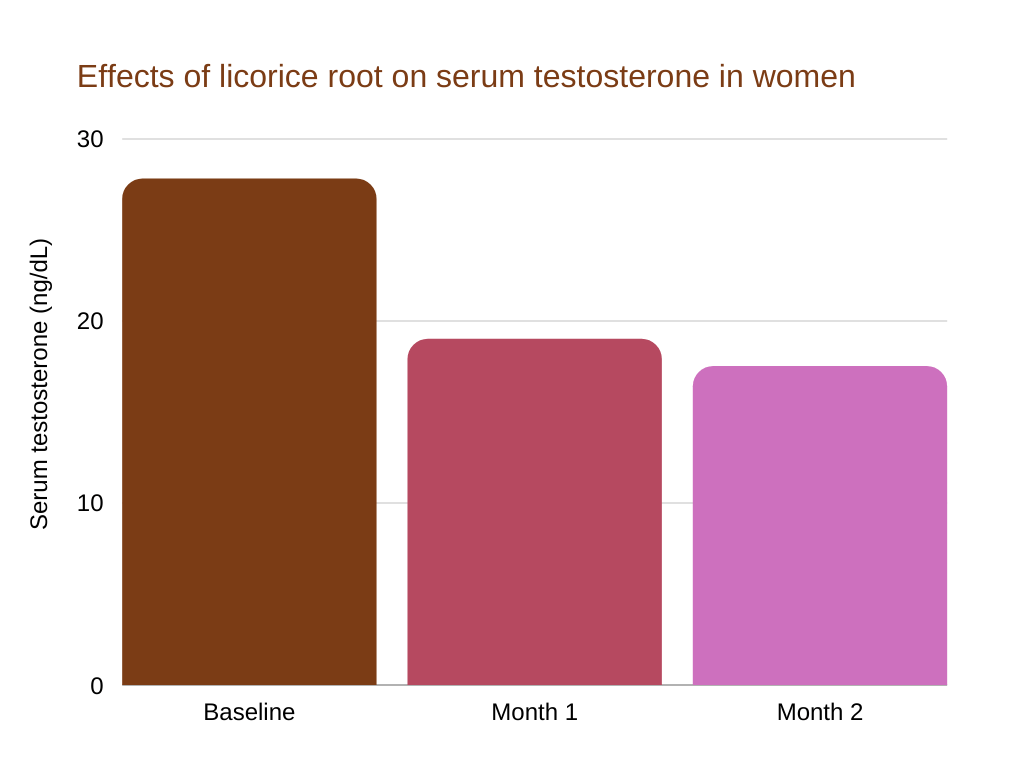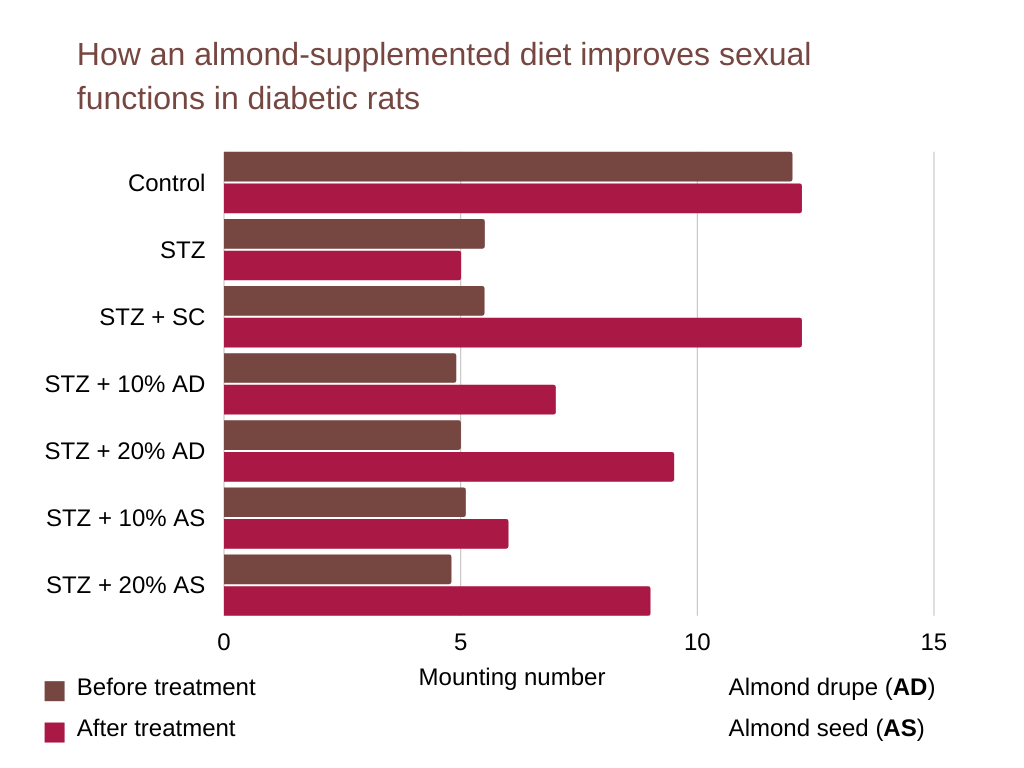Farrinstitute is reader-supported. We may receive commissions on purchases made through links on our site.
Flaxseed is one of a few foods that get picked on for lowering testosterone. You may have heard it mentioned at the gym in the same breath as soy, two foods that should be avoided if you want to be in good shape.
Unfortunately, that reputation just proves you should be wary when getting health advice at the gym. In reality, flaxseed has a more complicated relationship with testosterone. Regardless, it has the potential to offer a wide range of health benefits.
While there may be some situations in which flaxseed will lower testosterone, its effects are more complex [1]. Hormone levels overall can be affected by diet and exercise, of course. The impact of flaxseed on testosterone might be more complex.
Flaxseed is one of the biggest sources of lignans, a variety of compounds found in many plants [2]. In your stomach, helpful bacteria turn lignans into two compounds of a type called enterolignans, which are named enterodiol and enterolactone.
Both compounds are similar to estrogen in some ways. It might be the ratio of testosterone level to estrogen level, not just the amount of testosterone, that makes a difference [3]. Adding enterolignans could swing the balance too far toward the estrogen side [4].
An imbalance in the ratio has been linked to things like:
Enterolignans aren’t estrogen and can take up resources that would otherwise be used to make more of that hormone. This is particularly relevant as testosterone can be turned into estrogen. As a result, their role isn’t so clear-cut. In fact, flaxseeds may actually have the opposite effect, lowering the risk for the problems listed above.
The effects of flaxseed and enterolignans are still being investigated and a lot of the research is still being performed using animals. Not all of these benefits have been demonstrated in humans, so a certain amount of skepticism might be warranted. With that said, the list of potential benefits is impressive.
Studies have linked regular flaxseed supplementation with benefits including:
For a lot of guys, the concern with soy foods or flaxseed seems to be that these foods will impact muscle size or performance negatively somehow. If flaxseed does have an effect on muscle, it’s to help you keep the muscle mass you already have [10].
No, there is no link between flaxseed consumption and erectile dysfunction. If anything, animal studies suggest consumption of flaxseed has a beneficial effect on sexual function.
Women will see many of the same effects as men. Benefits for them may also include:
Obviously, body chemistry between the two sexes differs, so not everything is the same. For example, flaxseed doesn’t seem to impact the symptoms of metabolic syndrome as much. Testosterone may also not be affected in the same way.
At normal levels of estrogen, flaxseed can act as an estrogen antagonist, reducing the amount of estrogen in the body. At low estrogen levels, they can serve as a replacement for some estrogen receptors, making up for the lack.
As a result, women who have lower levels of estrogen may see more of a benefit. Older women may find that menopausal symptoms are lessened. However, pregnant women may want to avoid flaxseed as it can mess with an already delicate hormonal balance.
Polycystic ovary syndrome (PCOS) symptoms can be reduced by consuming flaxseed [12]. The condition can increase the likelihood of metabolic syndrome and make it more difficult to get pregnant, so it can have a serious impact on women’s lives [13].
It’s characterized by a hormonal imbalance, specifically in testosterone, estrogen, and another hormone called progesterone. Among its other health benefits, flaxseed supplementation helps balance those levels, which reduces the effects of PCOS.

Foods that can lead to a significant decrease in testosterone include:
The one factor that has always been associated with a significant decrease in levels of testosterone is a diet high in fat and carbs. Obese men and women can develop all sorts of problems with hormone imbalances, including lowered testosterone levels.
Fast food, boxed dinners, and similarly processed food may pose the biggest threat to healthy testosterone levels.
Small amounts of alcohol can actually increase testosterone. However, drinking large amounts consistently leads to lowered testosterone [15]. Alcohol acts as a testicular toxin–it interferes with the creation of testosterone, with levels being lowest right about when the hangover is at its worst.
Some types of mint are natural anti-androgens, compounds that inhibit the production of male hormones like testosterone [16]. It is used as a home treatment for PCOS for that reason, a natural remedy that science backs up.
The compound that gives licorice its biting sweetness is called glycyrrhetinic acid. It’s been linked to small reductions of testosterone in men, though it may have the opposite effect in women [17].

Source: https://pubmed.ncbi.nlm.nih.gov/15579328/
Certain foods can naturally help raise testosterone, including:
They are a staple in kitchens everywhere and a tasty way to boost testosterone. Formally called allium cepa, eating onions can lead to an increase in luteinizing hormone that gets turned into testosterone, so increasing one also increases the other [18].
They have a reputation for being one of the ultimate aphrodisiacs, despite looking gross. Oysters are a great source of zinc, which is required to make testosterone [19]. Another compound called oyster oligopeptide can also have a positive effect on testosterone [20].
Testosterone is involved in the process that breaks up protein and puts it to use around the body. Red meat is also rich in cholesterol, which is one of the ingredients used by your body to make testosterone [21].
Magnesium-rich spinach is another food that can naturally increase testosterone levels. Other dark green and leafy vegetables will also generally be helpful in increasing free testosterone levels.
Nuts are little bundles of nutrients and can have many health benefits. Almonds can be another good source of zinc as well as omega 3 fatty acids, both of which are good for the reproductive system.

Source: https://www.ncbi.nlm.nih.gov/pmc/articles/PMC6928307/
A few of the common symptoms of high testosterone in women include [22]:
High testosterone levels can cause a lot of problems for women. It can make it more difficult to get pregnant, lead to conditions like PCOS, and even affect mood. If you’re wondering how to lower testosterone levels in women, there may be no simple answer.
Medication is often used to reduce testosterone production. Clinical nutrition, using diet to address illness, has also seen some success.
Menopausal women also have to worry about rising levels of testosterone, which can lead to osteoporosis and other problems. Flaxseed has also been used to successfully lower testosterone in menopausal women.
Some symptoms of low testosterone include:
Natural testosterone levels drop as a standard part of aging, so some of these symptoms may just be part of getting older. However, another common cause of lowered testosterone is obesity [23].
There seems to be a spiral that some men can get caught in, where weight gain leads to lower testosterone, which makes it more likely they’ll gain more weight [24]. While it’s difficult to escape that spiral, it certainly is possible.
When the problem is weight-related, making lifestyle changes is the best way to boost testosterone. That means the usual strategies like eating a healthy diet and increasing exercise. Specifically, a dietary fat restriction might be a good idea. Cutting down on alcohol consumption is also a good idea.
In some cases, hormone replacement therapy may be necessary. It’s usually reserved for extreme cases that are caused by a specific illness. However, there are some less extreme options that are available that might be helpful.
Other androgens might also be prescribed by a physician. Over-the-counter options including some supplements might be a helpful alternative [25]. You can check out our Nugenix Total T review to learn more.
A few questions come up commonly when discussing flaxseed. Here are some direct answers to those common questions.
Flaxseed in all its various forms, including flaxseed oil and flaxseed meal, may increase your testosterone levels, though there isn’t a lot of evidence. On the other hand, flaxseed can decrease testosterone for some people, like post-menopausal women and women affected by PCOS.
There aren’t any known adverse effects to eating flaxseed. On the contrary, making a point to consume flaxseed daily will more likely improve your health. It can:
There probably isn’t one type of food that will raise testosterone for everyone all the time. Two top contenders for the best food for raising testosterone are probably oysters and red meat.
Oysters are rich in zinc and other compounds that encourage healthy production of testosterone.
Red meat, on the other hand, can supply the ingredients for making testosterone. It can also encourage your body to make more, providing a bunch of protein that needs testosterone to be processed.
Flaxseed does not significantly increase estrogen. Instead, it’s a source of enterolignans, which are sort of like estrogen analogs. Enterolignans can do some of the same things estrogen can, but not everything.
Further research might help us understand the role that enterolignans and other components of flaxseed impact our health. While there are some circumstances in which consuming flaxseed might lower testosterone, it might increase it in other cases.
Flaxseed seems to help us maintain homeostasis, a balance of factors that ensures optimal health. As a result, flaxseed is a genuinely effective supplement that can improve your overall health.